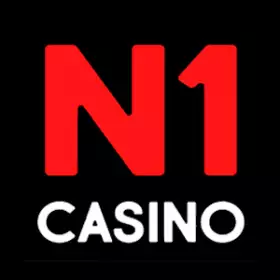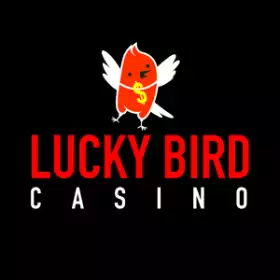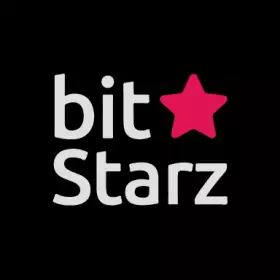
French Online Gaming Regulatory Authority

Autorité de régulation des jeux en ligne (the Online Gaming Regulatory Authority) was founded in 2010. The organization's competence is the regulation of online operators and licensing Internet institutions. The Ministry of Internal Affairs of France deals with licensing offline casinos. In general, the situation in the gambling sphere in the state's territory is rather ambiguous. On the one hand, it is within the framework of regulation, on the other several organizations control and issue licenses, and this complicates the licensing procedure. It is also worth noting that not all types of gambling entertainment are available online.
Autorité de régulation des jeux en ligne (the Online Gaming Regulatory Authority) was founded in 2010. The organization's competence is the regulation of online operators and licensing Internet institutions. The Ministry of Internal Affairs of France deals with licensing offline casinos. In general, the situation in the gambling sphere in the state's territory is rather ambiguous. On the one hand, it is within the framework of regulation, on the other several organizations control and issue licenses, and this complicates the licensing procedure. It is also worth noting that not all types of gambling entertainment are available online.
Regulator licensed casinos
No more than ten operators officially worked in France in 2019: Bwin, Betclic, Pokerstars, and others. These companies offer to bet on sports events or play poker online.
Autorité de régulation des jeux en ligne review
Until 2010, online gambling was banned in France.
The impetus for changes in this market was the European Commission's investigation, which occurred in 2005. The Casinoz team clarifies that since France is part of the European Union, the legislation must comply with EU standards and not infringe on the interests of other members (companies) of the Union.
In 2007, the Commission, having carried out an analysis of the gambling market, urged France to amend the existing legislation.
Two years later, in 2009, the government submitted a draft of a new law on gambling.
And on May 12, 2010, this normative act entered into force.
Due to the changed legislation, the French gambling market has become more open to third-party companies wishing to organize gambling on the territory of the state, including the Internet space.
But this is not all innovation. Simultaneously with the new law, the organization Autorité de régulation des jeux en ligne (the Regulatory body for Online Gaming) appeared, and it became responsible for licensing Internet gambling operators.
However, changes in the industry have not fully opened up the gambling market in France from the point of view of operators and players themselves. The Republic legalized only the following types of gambling via the Internet: betting on horses, sports betting, and poker. And this is a rather strange decision. Online casinos with slot machines are prohibited in the country. By the way, the placement of slots in gaming halls became legalized not so long ago. The government justifies the ban on video slots due to their great ability to cause gambling addiction.
Autorité de régulation des jeux en ligne (ARJEL) carries out a number of activities aimed at combating the consequences of gambling addiction. The regulator's official website provides information and contacts for anonymous assistance to players, as well as links to relevant sites. ARJEL obliges licensed operators to inform players about self-exclusion and methods of obtaining assistance.
Controller functions:
- issue permits and ensure operators comply with operating principles
- protection of vulnerable groups
- ensure the safety and integrity of the gameplay
- fight against illegal websites
- combating fraud and money laundering
Organizational structure:
- No more than seven principal members, chaired by the President
- The Sanctions Committee is composed of 6 justices of the peace
- Specialized commissions, if any.
The terrestrial sphere of gambling entertainment is licensed and regulated by the Ministry of the interior of France.
License types of Autorité de régulation des jeux en ligne
Depending on the type of activity of the company wishing to obtain a gambling license, it is necessary to apply for a certain type of license:
- Les paris hippiques – license for the possibility of organizing betting on horse racing.
- Les paris sportifs – sports betting license
- les jeux de cercle – poker license
Regulation in the terrestrial sphere of these types of gambling is the responsibility of the Ministry of Internal Affairs. Regulation of the Internet is the organization ARJEL.
The online gambling license is valid for five years.
Also, companies applying for licensing must undergo the certification of gaming equipment in accordance with certain technical requirements. In some cases, this causes difficulties, for example, if a company wants to open a poker room developed by Microgaming, in this case, in fact, the technical certification must pass the company Microgaming, which acts as the developer of the solution.
- Bingo is licensed by the game format of Bingo.
- Loterie – different types of lotteries are licensed.
Licenses for Bingo and Lotteries are issued by the Ministry of the Interior with the assistance of the Ministry of Economy, Finance, and Budget of France, regardless of the method of providing access (online and offline) to the games. Note that the state completely monopolizes the national lottery and is managed by La Francaise des Jeux. Also, this organization participates in licensing companies applying to organize the lottery. Recently, a proposal was made to privatize the company.
Gambling licenses for online casinos offering access to video slots (slot machines) are not issued because gambling entertainment is prohibited. Slot machines in land-based casinos are allowed to be installed only on the condition of access to any table game (roulette, poker, blackjack, etc.).)
Gambling taxation in France depends on the club's income. Monthly contributions range from 10 to 70%. In addition, there are indirect taxes; for example, in online poker, 0.2% of social contributions from each bet must be paid.
Dispute resolution
France's online gaming regulator does not handle player complaints about online operators. Customers of gambling clubs will have to resolve disputes independently, using the country's legislation, for example, apply to civil courts or the Department of Consumer Protection.
Conclusion
The gambling regulator in France (Autorité de régulation des jeux en ligne), according to Casinoz, does not fully perform its duties. Of course, its creation entailed the legalization and development of the Internet gambling industry in the Republic, but not to the full extent (online video slots are prohibited). It is also unclear why, with all the legal resources to license and regulate the work of operators, the regulator does not work with players' complaints because it makes gambling more transparent and honest. Perhaps a clear separation of online and offline licensing is a good solution (the Ministry of Internal Affairs regulates land-based casinos), but in this case, implementing this principle is not quite successful.
Frequently asked Questions
Online gambling was legalized in France on May 12, 2010, following the introduction of a new law.
Only betting on horses, sports betting, and poker are legal forms of online gambling in France. Online casinos with slot machines are prohibited.
The Autorité de régulation des jeux en ligne (ARJEL) is the regulatory body responsible for overseeing online gambling in France.
The ARJEL's primary functions include issuing permits to operators, ensuring compliance with operating principles, protecting vulnerable groups, combating illegal websites, and preventing fraud and money laundering.
The government justifies the ban on video slots due to their perceived high potential for causing gambling addiction.
The ARJEL provides information and resources for anonymous assistance to players, obliges licensed operators to inform players about self-exclusion options, and works to combat the consequences of gambling addiction.
Yes, there is a land-based gambling sector in France, which is licensed and regulated by the Ministry of the Interior.
As an EU member, France's gambling legislation must comply with EU standards and not infringe on the interests of other EU member states. The European Commission played a significant role in prompting France to reform its gambling laws.
| Main info | |
| Foundation date | May 12, 2010 |
| License types | les paris hippiques , les paris sportifs , les jeux de cercle (poker) , Bingo , Loterie |
| Name | French Online Gaming Regulatory Authority |
| Site languages | Français |
| Website | http://www.arjel.fr , https://www.interieur.gouv.fr/ |
| Contacts | |
| 🏠 Post address | Autorité de Régulation des Jeux En Ligne 99-101 rue Leblanc 75015 Paris France |





































